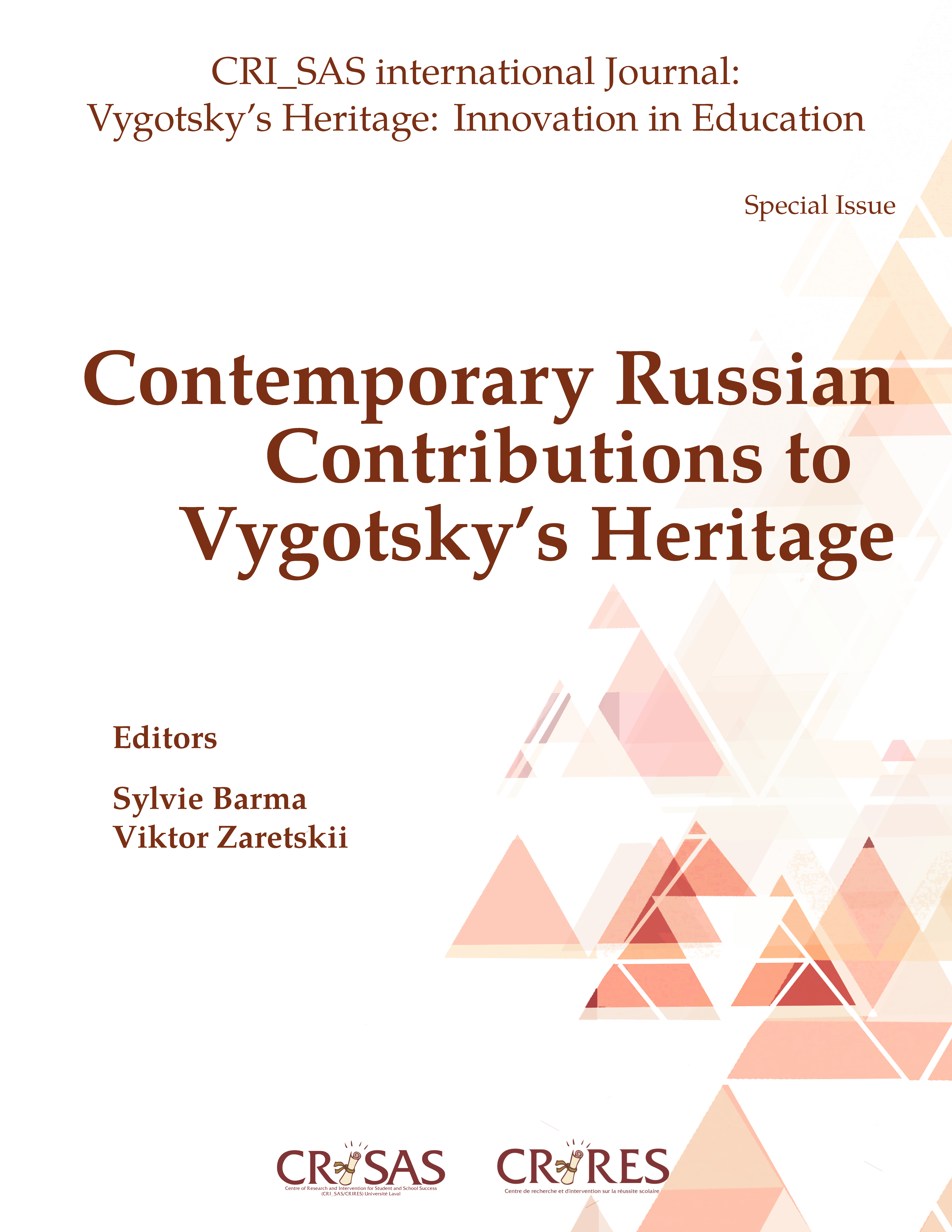Concept of Will as an Open Problem in Culture-Historical Context
DOI :
https://doi.org/10.51657/ric.v4i1.40992Mots-clés :
Personaly development, Will, Cultural-historical tradition, SubjectivenessRésumé
Outlines a new approach to the problem of development of will, emanating from the tradition of thought represented by Vygotsky and Bozhovich. The main conceptual de-velopment lies in drawing a distinction between two concepts – will (volya) and goal appropriation, self-regulation, executive cognitive control of behavior (proyzvolnost’). Both concepts emphasize the readiness and ability of an individual to pursue a goal. The distinction lies in the nature of that goal determination. In will, it is self generated and comes from the inner world of the individual while in goal appropriation, it is determined by an external source but is readily appropriated. A such distinction is supported by re-cent findings in neuroscience which describe the actualization of di˙erent brain structures depending on whether an individual acts upon will or willingly submission. Hence, the personality development is considered as a process of will development in which will and goal appropriation inter plays and progresses in specific stages paving the way for subjunctivization or becoming a true subject of that culture.
Références
Bozhovich, E. D. (1995). From notebooks by L. I. Bozhovich: Ideas about will development. In D. Feldstein (Ed.), L.I. Bozhovich shaping a personality (pp. 333–341). Moscow: Institute of Practical Psychology, Voronezh: MODEK Scientific Development and Production Center.
Bozhovich, L. I. (1995). Will development in ontogenesis. In D. I. Feldstein (Ed.), Shaping a personality (pp. 302-332). Institute of Practical Psychology, Voronezh: MODEK Scientific Development and Production Center.
Bozhovich, L. I. (2008). Personality and its formation at the young age. St. Petersburg: Peter.
Farber, L. (1966). The ways of the will: Essays towards a psychology and psychopathology of the will. New York: Basic Book.
Knyazev, G. G., Savostyanov, A. N., Bocharov, A. V., Slobodskaya, H. R., Bairova, N. B., Tamozhnikov, S. S., & Stepanova, V. V. (2017). Effortful control and resting state networks: A longitudinal EEG study. Neuroscience, 346, 365–381.
Smirnova, E. O. (2015). On the problem of will and self regulation in cultural historical psychology. Kul’turno-istoricheskaya psikhologiya [Cultural-Historical Psychology], 11(3), 9–15.
Stepanova, V. V., & Tolstykh, N. N. (2016). Interdisciplinary relationships between social, developmental and educational psychology: Resources for development. Social Psychology and Society, 7(1), 23–44.
Tolstykh, N. N. (2010). Hronotop: Kul’tura i ontogenez [Chronotope: Culture and ontogenesis]. Moscow: Smolensk.
Zaporozhets, A. V. (1986). Selected works in psychology, Vol. II. Moscow: Education.
Téléchargements
Publié
Numéro
Rubrique
Licence
© Nataliya N. Tolstykh 2017

Cette œuvre est sous licence Creative Commons Attribution - Pas d'Utilisation Commerciale - Pas de Modification 4.0 International.

